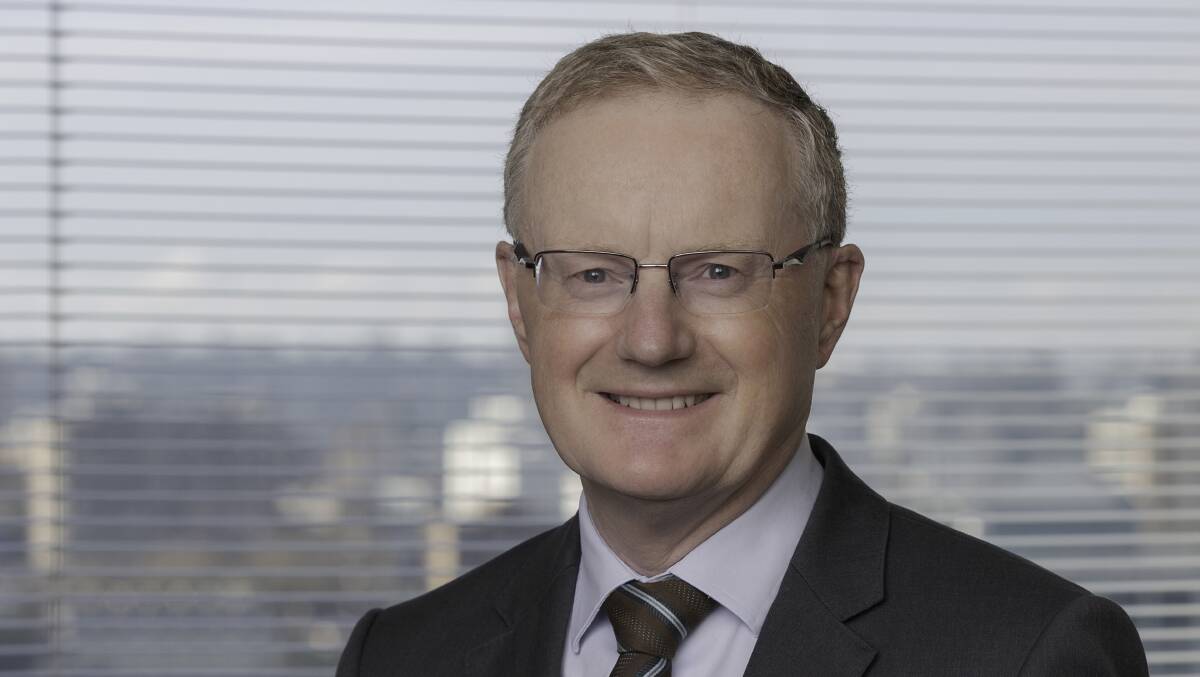
Reserve Bank of Australia governor Philip Lowe could arguably have the toughest sales job in the country at the moment.
Subscribe now for unlimited access.
$0/
(min cost $0)
or signup to continue reading
Over coming months the Reserve Bank governor needs to convince workers that big pay rises are not a good idea, which is a very hard sell when the cost of many of life's basics including food, accommodation and fuel are spiraling.
In a speech late last year, the RBA governor admitted there was "a natural appeal" to the idea that wages should increase to compensate for higher inflation.
But he warned it would lead to an economic disaster similar to that experienced in the 1970s and 1980s, when inflation and interest rates soared above 17 per cent.
The governor's concern is that if wages accelerate too fast, the spending they will unleash will simply add to inflation pressures and force the central bank to keep raising rates - a classic wage-price spiral.
"I know it's very difficult for people to accept the idea that wages don't rise with inflation and people are experiencing declines in real wages. That's tough. The alternative, though, is more difficult," Dr Lowe said.
"If we can ride through this period with wages growth staying broadly in the current range ... and the supply side problems resolve, inflation will come down and it can be painless, relatively."
The RBA governor wants any wage gains to be kept below 4 per cent. In effect, he is asking workers to accept a real pay cut now in the hope that the nation's inflation problem will resolve reasonably quickly.
It is a big ask, particularly coming, as it does, on top of a decade when wages barely kept up with rising living costs (and, in the case of most public servants, actually fell behind).
So far the federal government, which went to the last election promising higher wages, is treading a delicate line on the issue.
Treasurer Jim Chalmers claimed government credit for an acceleration in wage growth to 3.1 per cent in the September quarter - its fastest pace in almost a decade.
Dr Chalmers said the government's support for 5.2 per cent increase to the minimum wage and increased funding for aged care worker pay had contributed to the the wage lift.
READ MORE:
The Treasurer scoffed at concerns that such wage gains would add to price pressures in the economy.
"We don't have an inflation challenge because wages are too high, we have an inflation problem because of a war in Ukraine, pressure on global supply chains and other challenges ignored for too long," he said.
That may be the case for now, but if wages continue to grow and accelerate beyond 4 per cent it could be a different story.
There are good reasons to think this could be a risk, the tight labour market chief among them.
Unemployment has been pegged at a historically low 3.5 per cent for much of the past six months, giving workers bargaining power to ask for more money. There is anecdotal evidence that some are using it to secure significant pay rises of up to 25 per cent in cases.
Crucial to helping manage this will be an increase in the supply of workers.
The gradual return of international students, the expansion of initiatives such as the Pacific Australian Labour Mobility Scheme and increasing migration will be key in helping address labour shortages and, in the process, tempering wage growth.
Migrant arrivals surged to 395,000 in 2021-22, driving net migration to 170,900, and Dr Chalmers has flagged the net migrant intake may be increased beyond 235,000 in the May budget.
HSBC chief economist Paul Bloxham said that so far there is no sign of wage growth becoming "worryingly excessive" and he expects the Reserve Bank to hold interest rates steady on February 7 as it considered the effect of a 3 percentage point increase in the cash rate since May.
Dr Chalmers said the government has aimed to get wages increasing in "responsible ways", and improving productivity will be key to this.
The government will have to navigate a tricky path.
It runs the risk of disappointing workers if wage gains are too meagre but could stand accused of inflaming inflation and forcing interest rates higher for longer if pay rises get too high.
There is a lot riding on the government getting it right.


